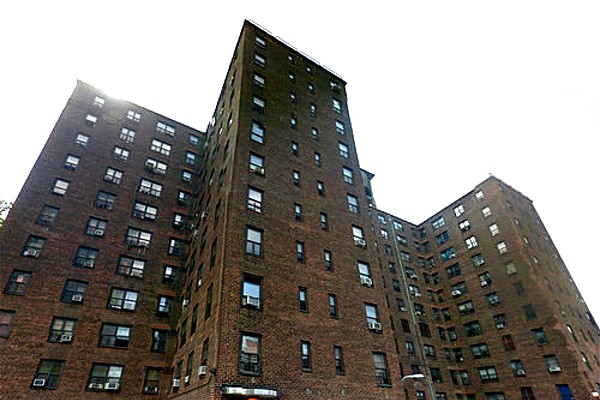 Members and staff from WE ACT for Environmental Justice will testify in front of the New York City Council today in support of Intro 1947.
Members and staff from WE ACT for Environmental Justice will testify in front of the New York City Council today in support of Intro 1947.
Intro 1947 is a bill that will amend Local Law 97 to expand the number of buildings that will have to comply with the emissions reductions rules while ensuring the equity and justice we fought to instill in the legislation.
Local Law 97, known as the Climate Mobilization Act, requires buildings in excess of 25,000 square feet to reduce greenhouse gas emissions 40 percent by 2030 and 80 percent by 2050.
Local Law 97, known as the Climate Mobilization Act, requires buildings in excess of 25,000 square feet to reduce greenhouse gas emissions by 40 percent by 2030 and 80 percent by 2050. It excluded buildings with affordable housing units out of concern that landlords would use this as an excuse to raise their rents, passing on the cost of compliance – considered a major capital improvement (MCI) – and escalating gentrification in these communities.
Specifically, these State laws tighten the rules that govern what spending qualifies for an MCI rent increase as well as strengthen the enforcement of these rules by requiring that 25 percent of MCIs be inspected and audited by the State Division of Housing and Community Renewal annually.
However, New York State recently passed rent laws that affect the way landlords can pass on MCIs to renters. Specifically, these State laws tighten the rules that govern what spending qualifies for an MCI rent increase as well as strengthen the enforcement of these rules by requiring that 25 percent of MCIs be inspected and audited by the State Division of Housing and Community Renewal annually.
They also cap the annual MCI rent increase at two percent statewide, down from the current six percent in New York City and 15 percent in other counties currently covered by the Emergency Tenant Protection Act of 1974. And they remove MCI rent increases and New York City Rent Guidelines Board rent increases based on an MCI after 30 years, instead of allowing them to remain in effect permanently.
They also cap the annual MCI rent increase at two percent statewide, down from the current six percent in New York City and 15 percent in other counties currently covered by the Emergency Tenant Protection Act of 1974. And they remove MCI rent increases and New York City Rent Guidelines Board rent increases based on an MCI after 30 years, instead of allowing them to remain in effect permanently.
…WE ACT and other climate justice advocates are now asking the New York City Council to expand Local Law 97 with Intro 1947, which will require all buildings with 35 percent of affordable housing units or fewer to also comply with Local Law 97.
Because of these new rent laws, affordable housing tenants in New York City are now protected from landlords passing on the costs of all MCIs – including those necessary to comply with Local Law 97. And that is why WE ACT and other climate justice advocates are now asking the New York City Council to expand Local Law 97 with Intro 1947, which will require all buildings with 35 percent of affordable housing units or fewer to also comply with Local Law 97.
“Intro 97 will help safeguard affordable housing, protecting tenants from MCI rent increases attributed to Local Law 97 compliance,” explained Cecil Corbin-Mark, Deputy Director and Director of Policy Initiatives at WE ACT for Environmental Justice. “This new legislation will ensure that all communities can become climate resilient without the risk of accelerating gentrification.
“And because buildings, not vehicles, produce the majority of the greenhouse gas emissions in New York City, passing Intro 1947 because will add thousands of buildings to the list of those required to reduce their emissions significantly under the Climate Mobilization Act,” added Corbin-Mark.
WE ACT for Environmental Justice is a Northern Manhattan membership-based organization whose mission is to build healthy communities by ensuring that people of color and/or low-income residents participate meaningfully in the creation of sound and fair environmental health and protection policies and practices. WE ACT has offices in New York City and Washington, D.C. Visit us at weact.org and follow us on Facebook, Twitter, and Instagram.
Become a Harlem Insider!
By submitting this form, you are consenting to receive marketing emails from: . You can revoke your consent to receive emails at any time by using the SafeUnsubscribe® link, found at the bottom of every email. Emails are serviced by Constant Contact








